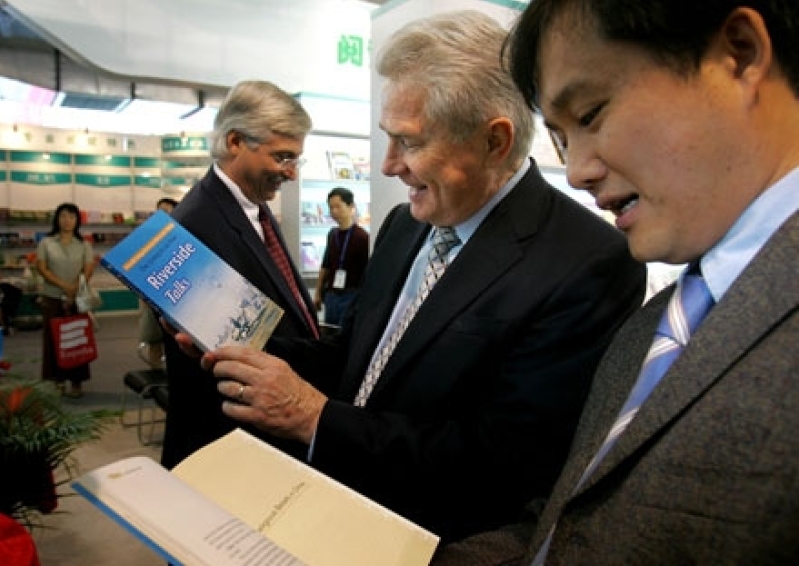
American evangelist Luis Palau will preach to an overflow crowd of up to 20,000 people at a megachurch in mainland China this month.
Registered church Chong Yi in the eastern city of Hangzhou will host the evangelist for the March 20 event.
Chong Yi Church is designed to seat only about 5,400 people, but senior pastor Joseph Gu said he believes they can fit 10,000 people into the various buildings on the church property, said Fred Conklin, a full-time volunteer with the Luis Palau Association who is handling the ministry’s China relations, to The Christian Post.
Pastor Gu also plans to put loud speakers with screens outdoors and fit another 10,000 on the church property, if weather permits, so that a total of up to 20,000 people can hear Palau preach.
The upcoming China trip is one of many that Palau has made over the years to build relations with Chinese church and government officials.
In 2007, Palau also spoke at Chong Yi Church to about 8,000 people, Conklin recalled. More than 800 people responded to Palau’s invitation to accept Jesus at that outreach.
During a trip to China last fall, Conklin said Pastor Gu reported that after two years, more than 50 percent of those who accepted Palau’s invitation are still going strong in their faith.
Palau has preached at several registered churches in China, including Gangwashi Church in Beijing in 2005, during his previous visits.
Palau’s dream, as he has publicly stated many times, is to be able to hold an open-air festival in China, as he does in other countries, with the permission of the Chinese communist government. So far, government officials have politely but firmly denied his request.
While Palau has a relatively good relationship with registered churches and government officials in China, he does not have much of a relationship with the country’s house church movement, according to Conklin.
The evangelist met with some house church leaders in 2004 and had sought their advice on how to best carry out his ministry goals in China. They told Palau that he would have to work through the registered churches to fulfill his dreams, Conklin said.
Palau then asked the house church leaders to join him in the activities with registered house churches, but they were hesitant to accept the invitation. They voiced concern over a few leaders among the registered churches, but also told Palau that 99.9 percent of the registered church leaders are solid, genuine Christians.
But since that time, there has been “very little” to almost no contact between Palau and the house church movement, Conklin said.
In China, citizens are only allowed to worship in religious institutions approved by the bodies established by China’s Religious Affairs Bureau to exercise state supervision over them. For Protestant Christians, this means worshipping in churches affiliated with the Three-Self Patriotic Movement and the China Christian Council.
However, tens of millions – and up to 100 million by some estimates – of Chinese Christians refuse to worship in registered churches. “Underground” or “house church” Christians worship secretly in homes at the risk of being arrested, fined, or imprisoned by Public Security Bureau officials.
They argue that the government should not be the head of the church and that restricting where they can worship infringes on their religious freedom.
There is still significant tension between the house church and registered church bodies in China, but friction has slightly eased over the years.
In his upcoming trip, Palau and his team will arrive in China on March 18 and meet with government officials in Beijing the following day. After the outreach event in Hangzhou, Palau will also visit Shanghai before he leaves the country on March 22.







